History of Modern Medicine
This essay will cover the historiographical elements of Western Medicine. From the origins of where Western medicine began and the practices that existed long before the working definition of medicine came to be,through the practices of Prehistoric Medicine. It will discuss how medicine has evolved into what today’s standards of Medical practices are, as well as how we have preserved those practices through written historical evidence. It will explore who were/are the dominant figures and contributors to the historiography of Western medicine. By doing so, whose perspectives have been left out and whose histories and biases are evident in the study of medicine.Finally, this essay will focus on how has the way that we talk about the history of Western medicine changed? What has having the knowledge that we have acquired about medicine helped shape our society?
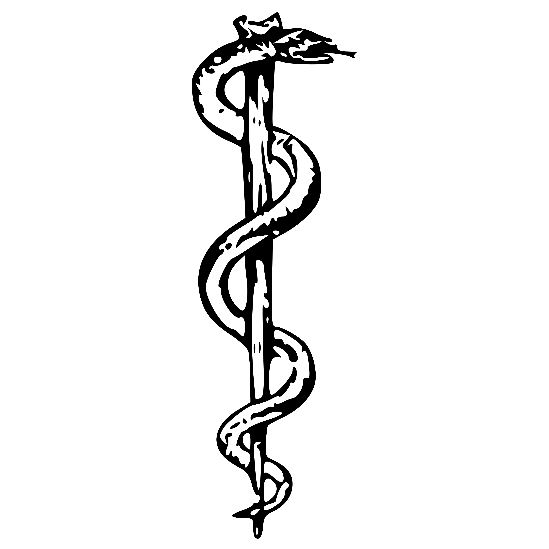
The Origins of Modern Medicine in the West
Every year, thousands of new young doctors graduate from medical school with the hopes of touching and changing lives every day in their respective fields. Although they have chosen different specialized fields of medicine, they all have the same aspirations to help and heal the sick. With each new class of doctors, there is also that time honored tradition of taking the Hippocratic Oath in which they pledge to uphold the ethics of a proper doctor . But what exactly is the Hippocratic Oath and why is it relevant to medical practices today? The short answer to that is; Western medicine has its’ origins within Ancient Greek practices and the Hippocratic Oath is attributed to the ‘Father of Modern Medicine,’ Greek physician Hippocrates. However, the view that the ancient Greek’s had of medicine, although deeply embeded within our medical practices, is by no means the only ancient civiliztion to practice medicine. That being said, the views and histories we have of medicine today can trace its origins further back than with the Greeks. In order to have a full understanding of where medical practices originated from, we must take a look at the origins of modern Westernized medicine and ask ourselves the most important question of all, why does it matter?
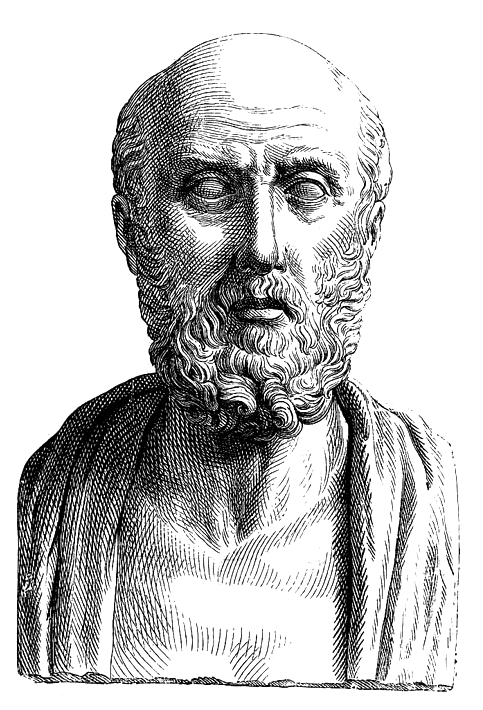
Prehistoric Medicine: Magic and Healing
As long as humans have inhabited the earth, medicine and the practice of it has also existed. long before there was even a working definition of Medicine as we know it today. imbeded within our animalistic nature, is our wanting to understand the world aound us and how it interacts and affect us. When we get hurt, we want to figure out how or why. When we get sick, we want to know what got us sick. This relationship has always existed and always will because it is a part of our species to be curios.It is this kind of relatiosnhip however, where we can trace some of the origins of medicine, or at least the understandings we have of how the body works.
Prehistoric Medicine refers to the medical practices executed before the invention of writing as well as the documentation of medical history began. Because there are no written sources for this period, and because many civilizations evolved at different points in time to using written sources, according to online medical source, Medical News Today, prehistoric medicine “…covers a vast period and varies, according to regions of the world and cultures”(Brazier, p.1). In other words, this type of history encompasses a wide range of time periods and dates. Furthermore, because there are no written sources to turn to, is a discipline very reliant on artifacts, human remains, and anthropology. The tools that scholars have used to study the origins of medicine trough these ancient practices have given them evidence that “…people in prehistoric times would have believed in a combination of natural and supernatural causes and treatments for conditions and diseases” (Brazier, p.3). Through the study of human remains, many scholars have been able to deduce that practices such as Trepanning, which involves treating common medical conditions such as mental disorders, migraines or epileptic seizures by drilling holes in the patients’ head, (source: Medical News today) were common practice and according to the same source medical source, “ There is evidence that humans have been boring holes into people’s heads since Neolithic times to try to cure diseases or free the victim of demons or evil spirits” (Brazier, p.39).
As long as humans have inhabited the earth, medicine and the practice of it in various civilizations has also existed. Prehistoric Medicine refers to the medical practices executed before the invention of writing as well as the documentation of medical history began. Because there are no written sources for this period, and because many civilizations evolved at different points in time to using written sources, according to online medical source, Medical News Today, prehistoric medicine “…covers a vast period and varies, according to regions of the world and cultures”(Brazier, p.1). In other words, this type of history encompasses a wide range of time periods and dates. Furthermore, because there are no written sources to turn to, is a discipline very reliant on artifacts, human remains, and anthropology. The tools that scholars have used to study the origins of medicine trough these ancient practices have given them evidence that “…people in prehistoric times would have believed in a combination of natural and supernatural causes and treatments for conditions and diseases” (Brazier, p.3). Through the study of human remains, many scholars have been able to deduce that practices such as Trepanning, which involves treating common medical conditions such as mental disorders, migraines or epileptic seizures by drilling holes in the patients’ head, (source: Medical News today) were common practice and according to the same source medical source, “ There is evidence that humans have been boring holes into people’s heads since Neolithic times to try to cure diseases or free the victim of demons or evil spirits” (Brazier, p.39). Another practice of prehistoric medicine that adds an element of the supernatural with healing, is the use of Shamans or Medicine Men. According to Anthropology Professor Francis X. Grolling, in his work entitled Medical Anthropology, when referring to this type of healers in prehistoric medical context he writes, “Ethnographic evidence indicates that the usual person to call to the aid of an injured or sick person has been the shaman or ‘witch doctor.’ In most cultures, there is a specialist who treats illness, injury, and disease and quite frequently, this person corresponds to the leader of religious practices, whatever he or she may be called.” (Grolling, pg. 6). These medicine men who because of the religious component of the culture would also be considered a person who practices magic and witchcraft, would maintain the health of their tribes through the use of herbs and other remedies necessary to treat the disease and inherently, “…treat the individual by special magical processes and concoctions that are supposed to bring back the spirit of the sick person.” (Grollin, pg.6). Although, in modern medical practices we no longer hold the view that patients need to be treated to heal a person’s spirit but rather by their symptoms, the practices of healers such as Medicine men, Shaman, or even Curanderos, still exist today in some primitive societies and their methods are still observed by anthropologists, their techniques as they pertain to medicine are considered to be part of the holistic view of medicine. However, despite how these practices are viewed today, they proved to be a tipping off point and inherently laid the foundations for the practice of medicine before the term or historiographical concept of it was even applied. This is best summed up by Grollig when he writes about the relationship between humans and medicine,
The factors of time and are crucial variables in man’s struggle to overcome the selective pressures exerted by the pathology of his environment. This point cannot be over-emphasized when one realizes that human knowledge on the whole is acquired by the process of trial and error. In other words, so long as people living in a particular territory are selected out by ‘mystical forces’ (variously known as demons, diseases, spirits, germs, parasites, and viruses) it would seem most nonhuman not to discover some remedies to ward off these challenges to existence and the perpetuation of the species (Grollig, pg.11).
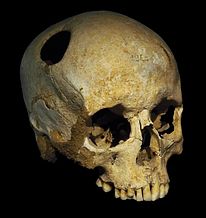
The Ancient Egyptians and Medicine
Before the Ancient Greeks and their applications of medicine solidified its’ place in history, there was the practices of the Ancient Egyptian’s. Much like the Greeks’ influence on our medical practices, the Greek’s turned to the advanced medical practices of the Egyptians to shape the direction they practiced medicine. Although their practices were advanced in the sense that they understood the concept of the human body and cleanliness, at the same time, they held onto the prehistoric view of medicine and that illnesses were sometimes tied to the sin of a person and bad spirits. This is best described by author and contributor to the Ancient History Encyclopedia Joshua J. Mark, when referring to the Egyptian civilization medicine, “Even so, for a civilization which regularly dissected the dead for embalming, doctors had little understanding of how most of the internal organs worked and blamed disease on supernatural forces.” (Mark, p. 6). For the Egyptians, injuries were easier to treat and understand than diseases were. Furthermore, the earliest Egyptians doctors also treated their patients much like the “witch-doctors” did during the aforementioned prehistoric medical age. This is best characterized by and re-iterated by Mark when he writes, “Disease, therefore, was commonly treated through recitation by a doctor of magical spells. The earliest doctor was a magician, for the Egyptians believed that disease and sickness were caused by and evil force entering the body” (Mark, p.8). Despite their continued ties to the prehistoric view of medicine through the supernatural world and its relation to disease and medicine, one of the Egyptian civilization’s greatest contributions to the modern practices of western medicine is their papyrus scrolls, which they would use to write down their spells and incantations for treatment and thus became the first examples of written medical sources of medicine. Although it is speculated that many Papyrus and wealth of information regarding the practices of the Egyptian’s and medicine was inexistence at one point in time, only a handful of papyrus scrolls are still in existence today and are ‘named after the person who owned them or the institution that housed them’ (Mark, p.9). As alluded to previously, all the papyrus in existence today have given medical historiography much of the foundations in which modern medicine is laid. One Papyrus source in particular stands out from the others as being especially valuable to medical practices is the Edwin Smith Papyrus. This particular papyrus is unique in that all the other medical papyrus in existence today although provide valuable information, are based in magic and the supernatural world to provide cures to disease that were unknown at the time; while the Edwin Smith Papyrus presents a rational and scientific approach to medicine, much like the approaches we will see later on with the continued modernization of standards of medicine. Adding further dimensions to this work is who the original author of the Edwin Smith Papyrus to be, Egyptian polymath, Imhotep (c.2667-2600 BCE) who, amongst many of his achievements, is best remembered according to Marks as, “…he was also remembered for his medical treatises which regarded disease and injury as naturally occurring instead of punishment sent by gods or inflicted by spirits or curses. He was deified by the Egyptians in c.525 BCE and was equated with the demi-god of healing Asclepius” (Mark, p.2). Although the direct correlation between the Egyptians and the Greeks in regard to modern medicine is not very distinct, the Greeks took much of their influence and further evolved their concepts into their own which inherently gave rise to the Greeks being labeled as the civilization that founded modern western medicine and without whom, our medical practices and applications would also be vastly different.
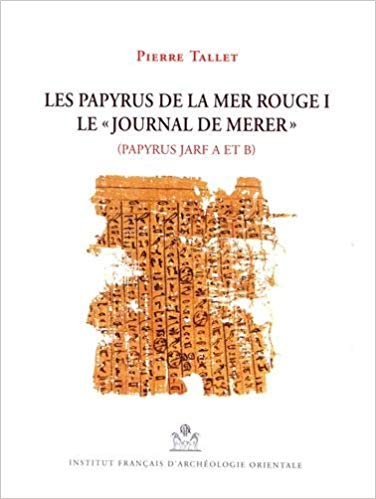
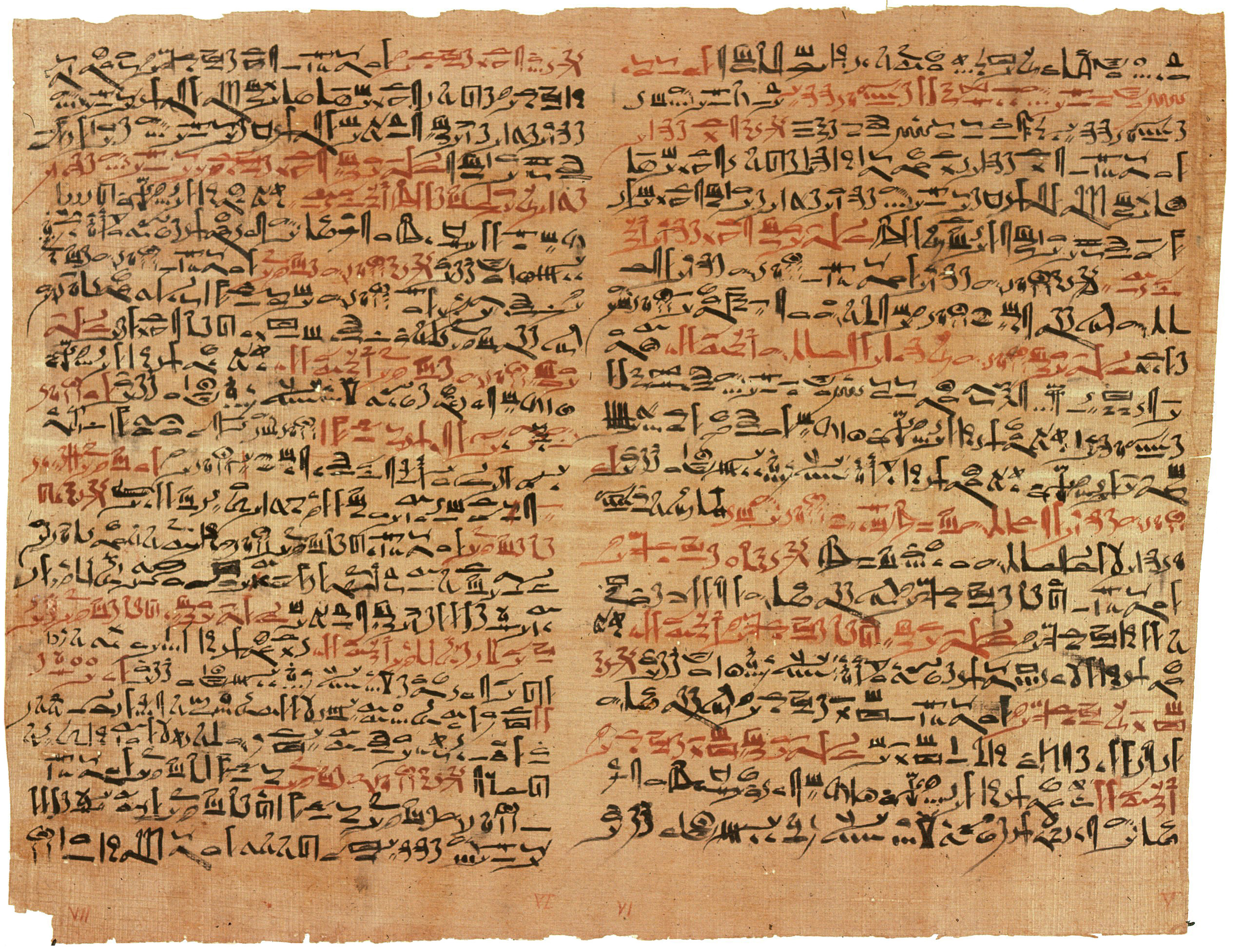
The age of the Greeks: A Shift in Medicine
Much of what we know today about modern medicine is attributed to the Greeks and famous figures such as greek physician Hippocrates, poet and author Homer, and the Greek god of medicine, Asclepius. Although this is for good reason, as we have just seen, the Greeks took some of their influences from pre-established practices of medicine. This being evident in the work of Homer for example specifically in his work of the Odyssey. Author Jouanna Jacques, in her work entitled Greek Medicine from Hippocrates to Galen, touches on the influences of Egyptian medicine evident in the works of Homer when she writes, “The first passage concerning the image of Egypt in the realms of medicine is found in the Odyssey. We can speak of it as a foundation text since it served as a foundation text since it served as a point of reference for later authors, including doctors.” (Jacques, pg. 8). She follows this later with a re-iteration of the importance of not only the texts of Homer but what his texts have contributed to medicine when she writes, “This judgement on the excellence of Egyptian Doctors remained in the memories of Greek authors; It is this passage of Homer that comes most naturally to the mind of Greek authors when they speak of Egyptian medicine” (pg. 9). Clearly, the influences of the Egyptian civilization are embedded within that of the Greek’s. So, if all of that is true, why are the Greeks considered the Civilization of Modern Medicine? The answer to that can perhaps best be attributed to a shift in medical practices known as Hippocratic Medicine in which Greek philosophers and doctors started to reject the view of supernatural causes of ailments and the practices of witch craft; instead seeking rational explanations for diseases as well as looking for physical causes of illness. Jacques best sums this up when she writes, “It is with the development of Hippocratic Medicine in the second half of the fifth century that the image of Egyptian medicine disappeared in the eyes of the Greek practitioners the most significant witness is the Hippocratic treatise Ancient Medicine. This treatise of rational medicine recounts for the first time, a history of the medical art” (Jacques, pg. 12). This shift in ideology of medicine is precisely why we consider the Greeks to be the founders of modern Medicine and in which we base our own views of medicine on.
Hippocrates, the Hippocratic Oath and Beyond
There is one specific name that almost universally gets associated with medicine, and that is Hippocrates. Though not much is known about Hippocrates while he was alive, the most famous work that is attributed to him and his philosophy about medicine is the Hippocratic Oath which mentioned at the beginning, is the oath that all new doctor’s still take today in which they promise to uphold the standards of medicine that Hippocrates established so many centuries before. Although the Hippocratic Oath is not repeated verbatim in the same way it was when it was first adopted, the guiding principles of it are still so relevant, that they are altered generationally to be able to be applied to each new generation of healers.
Why Does all of This Matter?
In the beginning, we talked about the various practices of medicine that existed before the concept of medicine, as it is understood todayexisted. We then got to see how our origins in medicine began with the intersectionality of the natural world and the supernatural world. How we interpreted what was happening within our bodies and what practices were engaged to heal our bodies. Finally, we looked at the Egyptians and the Greeks and their contributions to what we see as modern Western views of Medicine. Although both made great strides in this field, it is important what we take away from these views of History. Yes, the Greek and Egyptian civilizations are important to look at when we view history through an Analytical lens, i.e. the sources they produced and methodologies they upheld. But what we must keep in mind is this is not the only view we can have when considering medical practices on a global scale. As we touched on briefly, healers such as medicine men, curanderos, shaman, etc. are still very much in existence today and even though they are greatly outnumbered by medical doctors and physicians, practice medicine in the same way, and that is whatever is in the best interest of the people that they are trying to help or heal. Adding further to this point, just because ‘holistic’ medical practices such as the aforementioned healers are not considered as being a part of modern medical practices and instead categorized as alternative medicine, does that make them any less relevant or practical? And who gets to decide what is considered to be universally practical medicine? What we take away from history and what it has to show us both in evidence and methodologies is always up for interpretation, and medical historiography is no exception to that.
Sources
Brazier, Yvette. “Prehistoric Medicine: Research, Disease Prevention, and Medications.” Edited by Daniel Murrell, Medical News Today, MediLexicon International, 1 Nov. 2018, https://www.medicalnewstoday.com/articles/323556.php.
Smith, Wesley D. “Hippocrates.” Encyclopædia Britannica, Encyclopædia Britannica, Inc., 24 May 2019, https://www.britannica.com/biography/Hippocrates.
The Editors of Encyclopaedia Britannica, and Grace Young. “Edwin Smith Papyrus.” Encyclopædia Britannica, Encyclopædia Britannica, Inc., 17 Mar. 2016, https://www.britannica.com/topic/Edwin-Smith-papyrus.
Cartwright, Mark. “Ancient Greek Medicine.” Ancient History Encyclopedia, Ancient History Encyclopedia, 11 Apr. 2018, https://www.ancient.eu/Greek_Medicine/.
Mark, Joshua J. “Imhotep.” Ancient History Encyclopedia, Ancient History Encyclopedia, 16 Feb. 2016, https://www.ancient.eu/imhotep/.
Jouanna, Jacques, et al. Greek Medicine from Hippocrates to Galen. [Electronic Resource] : Selected Papers. Brill, 2012. EBSCOhost, search.ebscohost.com/login.aspx?direct=true&db=cat06111a&AN=unm.EBC999437&site=eds-live&scope=site.
3180 words. /essays/early-modern/modern-medicine.html